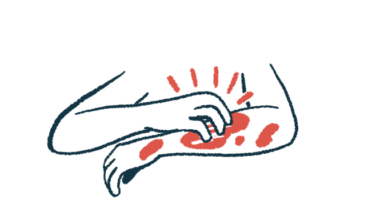Stress and ‘Helplessness’ Voiced by EB Caregivers in Taiwan

Family members caring for children with epidermolysis bullosa (EB) report considerable stress, fatigue and feelings of helplessness, and need greater social and financial support, a small Taiwanese study based on interviews with 10 caregivers reports.
This need is particularly acute in Taiwan, its researchers note, because that country lacks EB treatment centers, where “[m]ulti-discipline teams can assist with the extensive and constant care” needed by many patients.
The study, “Family caregivers’ lived experiences of caring for epidermolysis bullosa patients: a phenomenological study,” was published in the Journal of Clinical Nursing.
EB affects proteins in the skin, causing multiple wounds and skin blistering requires constant attention and daily treatment, often done in the home. Most patients are hospitalized only at their initial diagnosis, often at birth, and during periods of acute crisis.
“Raising a child with rare diseases can be physically and mentally challenging, especially for parents” the researchers wrote.
Few studies focus on the physical and mental burden of EB caregivers. Researchers in Taiwan addressed this gap by interviewing 10 caregivers from seven families: seven mothers, two fathers, and one grandmother (ages 40 to 68). EB types included five cases of dystrophic EB , one case of EB simplex, and one of junctional EB.
Data was collected between December 2015 and February 2017 in one interview conducted at the Taiwan Foundation for Rare Disorders (TFRD), and another at the family’s home.
To analyze the interviews, researchers used a seven-step method that includes understanding the overall experience of caregivers, selecting the most significant statements, and categorizing them in themes and subthemes.
Caregivers reported feelings of guilt and helplessness upon learning their child has EB. At first contact with blistering, parents described feelings of distress, shock and an inability to understand the disease.
Mothers’ experiences were linked to feelings of responsibility for “loving and protecting their children.” They reported anxiety and feelings of guilt (self-blame) related to the constant risk of bursting skin blisters.
Both physical and mental exhaustion was associated with the long-term care required and with constant worrying. Sleep quality was affected, and anxiety and depression promoted.
Parents also reported searching extensively for treatments and alternative therapies, and finding this process disappointing and mentally torturing.
Caregivers consider family support insufficient, and struggle with the social and economic aspects of EB care, including rising “expenses for wound dressings, nutritional supplements, and physical rehabilitation.”
Many also spoke of positive experiences with rare disease associations.
“When I started contacting the TFRD, I found they were eager to provide me with considerable assistance. They also visited my house directly to teach me how to change dressings and gave me the strength to continue caring for my child. I really thank them for their help,” said one caregiver.
These findings, the researchers stressed, highlight the urgent need for better social and financial support for families caring for EB patients.
“[W]e suggest that the care needs of EB patients be included in the rare diseases and rare genetic diseases defect care services, thereby allowing these family caregivers an occasional breather through government-provided home care services,” the researchers wrote.
“Even these incremental improvements would reduce the long-term physical and mental burdens on caregivers,” they added.






